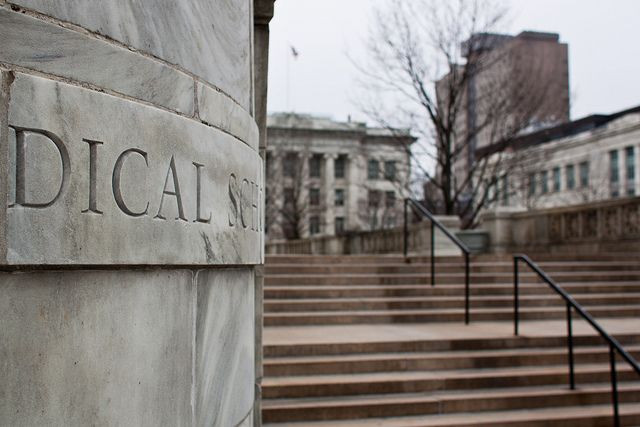Skipping The Fourth Year Of Med School: Educators Call For Abbreviated Medical School Curriculum To Reduce Student Debt, Strengthen Workforce

Medical students and universities could benefit from reducing the traditional four-year curriculum to three years, according to educators at NYU School of Medicine. In a recent editorial published in the New England Journal of Medicine, that argue that offering a three-year degree to highly qualified applicants would cut student debt and partially offset long residencies. In addition, the abbreviated degree would allow academic medical centers to adapt to the dramatic changes attending the implementation of the Patient Protection and Affordable Care Act.
Before a medical school graduate can become a fully licensed physician, she must complete a residency in her field of practice. In the past few decades, these postgraduate programs have become increasingly extensive, with some sub-specialties requiring up to 8 years of supervised training. In highly specialized fields, the journey from MS1 to independent practice can take 13 years.
"A four-year program for all graduates made sense when postgraduate training lasted two or three years. Now, residencies and fellowships routinely extend the postgraduate period to six years or more, which means that many physicians don't enter practice until their early or mid-30s,” lead author Steven B. Abrahamson explained in a press release. "Indeed, data from the American Medical Association show that since 1975, the percentage of physicians under the age of 35 has decreased from 28 percent to 15 percent."
According to the study authors, the current academic structure was proposed by educator Abraham Flexner in 1910. The Flexner Report recommended that medical school curriculum be split into two years of basic science and two years of clinical experience. More than a century later, the healthcare industry has been subject to fundamental changes, and educators should respond accordingly. Abrahamson and his colleagues argue that by cutting the duration of medical training by 30 percent, student debt could be reduced by 25 percent without compromising either competence or quality of care.
"We are at a point of inflection whereby alignment of training across the levels of medical education with regulatory standards and our health care delivery system is critical to train physicians and physician scientists who are passionate care providers across specialties," said Robert I. Grossman, MD, dean and CEO at NYU Langone. "In the years ahead, developing a uniform set of milestones and competencies that assess physicians throughout medical school, residency, fellowship and ultimately clinical practice will be a major task for medical educators."
NYU School of Medicine is now offering its own Three-Year MD Pathway. The academic program allows students to save time and tuition costs by applying for admission and residency placement at the same time. The university hopes that other institutions will follow.
Published by Medicaldaily.com



























